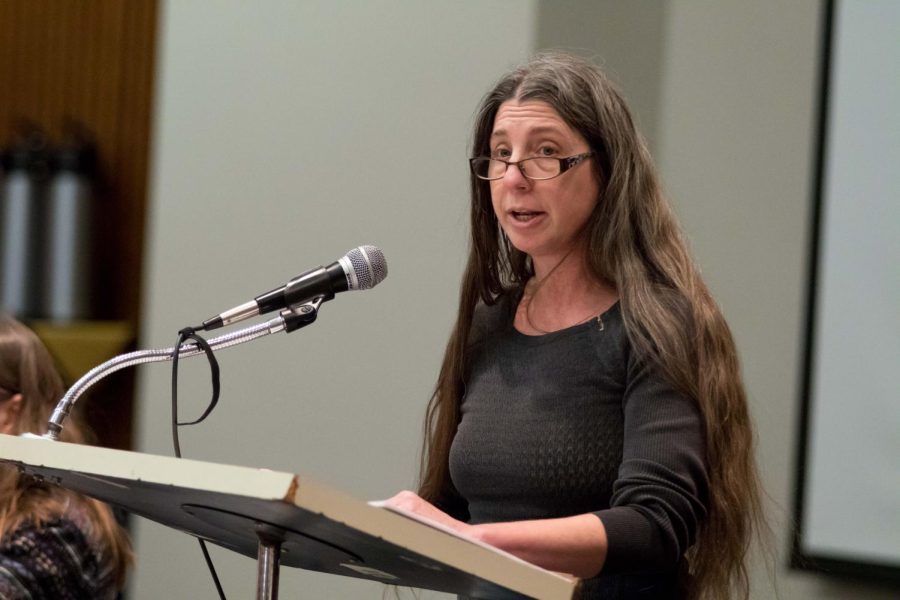Faculty union requests fact-finder to move contract negotiations forward
HOW FACT-FINDERS WORK
1.) The State Employee Relations Board will produce a list of five fact-finding agencies for the university and union to consider
2.) Both sides will come together and agree on an agency to carry out fact-finding duties
3.) The university and union will both present evidence supporting their side of the contract dispute to the fact-finder
4.) The fact-finder will consider the evidence and create a contract proposal meant to resolve the disputed parts of the contract
5.) The union will hold a vote of its dues-paying members to accept or deny the contract
-If accepted, both sides will move to finalize the contract
-If denied, the university will provide its best, final offer to the union. The union may either accept the contract, or declare an impasse, halting further contract negotiations
The university’s tenure and tenure-track faculty began the semester without a new contract.
Despite mediation sessions Nov. 28, Dec. 11 and Dec. 17, Kent State’s tenure and tenure-track faculty union, along with the university administration, haven’t agreed on a new deal.
The American Association of University Professors-KSU (AAUP-KSU) union requested a fact-finder to be brought into the negotiations on Dec. 20.
AAUP-KSU members voted to approve strike authorization Dec. 10, in the event contract negotiations fall apart.
With the authorization passed, Melissa Zullo, the president of the AAUP-KSU chapter, may declare a strike after giving 10 days’ notice to the university. The strike authorization, however, doesn’t mean they’re close to leaving the negotiation table; a strike would be the “last resort,” according to a fact sheet found on the AAUP-KSU website.
“AAUP-KSU will not call a strike unless and until every other avenue for reaching a fair contract has been exhausted,” according to the fact sheet.
The AAUP-KSU fact sheet also noted the threat of a strike functions as leverage against the university.
“When dealing with ‘hard liners’ who do not respond to reasoned arguments and shared interests, a union ultimately has no negotiating power unless it demonstrates a willingness to strike,” it reads. “Accepting the current proposals without a fight will certainly lead to more of the same treatment in the future.”
The next mediation session is scheduled for Jan. 23.
The contract for tenure and tenure-track professors expired Aug. 18, 2018. Without a contract in place, professors don’t risk a breach of contract for striking.
Even though both sides have yet to agree on new terms, affected faculty members are able to continue teaching. Until the new contract is signed, both sides operate under the terms of the previous contract.
Some aspects of the contract have already been approved, but the university statement on the strike authorization noted the December mediation sessions would focus on “a strategic emphasis on competitive, yet realistic wage increases and revisions to our healthcare plans.”
In an email sent to tenure and tenure-track faculty members Jan. 14, Deborah Smith, a philosophy professor and chief negotiator for AAUP-KSU, outlined those key elements of the contract as primary issues that have pushed the contract dispute into the new semester.
The university’s offer for salary increases would be a declining raise over three years, with an 1.94 percent increase in the first year, 1.83 percent in the second and 1.43 percent in the third year.
In the email, Smith called the university’s offer “a poison pill for the faculty.”
Smith also noted concerns with the university’s health care plan proposal, which she said would lead to a 67 percent or 100 percent increase in premiums, depending on the individual’s plan, for faculty members on a university plan.
As the possibility of a strike sits on the table, both sides will continue protocol for resolving the contract dispute. This included the mediation sessions that took place last year, as well as the next session in January.
With the request to bring in a fact-finder from AAUP-KSU, negotiations have now moved into the second-to-last step before initiating a strike would be considered.
If negotiations fall through and no contract can be agreed upon after the fact-finder is brought in, the university will present a final contract offer. At this point, the union may either sign it or initiate a strike.
While on strike, tenure and tenure-track professors wouldn’t attend classes or office hours, administer tests or exams, attend committee meetings or participate in any other regular duties, according to the AAUP-KSU site.
AAUP-KSU doesn’t and can’t require its members to participate in a strike, but its website states, “The higher the level of participation, the more effective a strike will be.”
In its statement on the strike authorization, the university clarified it wouldn’t be paying striking employees or providing them with health benefits — both of which the university is within its legal right to withhold during the strike.
In the statement, the university also noted, “During a strike, our top priority would be to assure that quality instruction to our students is not interrupted.” To keep classes running, the university may seek professors to fill in, including non-tenure professors and tenure-track professors who aren’t striking.
It’s possible the university might put together a plan, before a potential strike would begin, to fill in as many classrooms as possible, but declined to comment if any plan has been put in place yet.
Both Eric Mansfield, the university’s executive director of media relations, and Zullo were unable to comment on any details of the negotiation.
Nicholas Hunter is a senior reporter. Contact him at [email protected].



